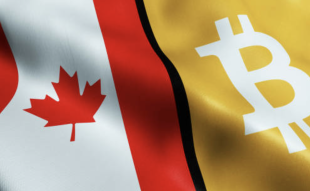Join Our Telegram channel to stay up to date on breaking news coverage
France has emerged as an attractive option for crypto companies seeking stability amidst regulatory ambiguity. The country’s well-defined regulatory framework, which continues to evolve, offers a sense of predictability and has already enticed numerous crypto businesses.
While challenges and unanswered questions persist, the proactive approach of French authorities sets them apart from their American counterparts.
French Regulator Extends Invitation to U.S. Crypto Firms
France presents an appealing destination for crypto companies seeking refuge from the turbulent landscape of U.S. regulations. Officials in France take pride in their regulatory framework, which offers a level of predictability that crypto businesses find reassuring.
With approximately 74 registered crypto companies already established in the country, this number may rise to 100 as additional firms anticipate the implementation of the European Union’s new regulations for Markets in Crypto Assets, recently approved by ministers.
Benoît de Juvigny, the Secretary General of the Autorité des marchés financiers (AMF), expressed France’s pioneering role in the crypto industry. He highlighted the 2019 legislation that introduced the crypto service asset provider regime, known as PSAN.
Juvigny welcomed American players, emphasizing the short-term benefits they can enjoy under the French regime and, starting from 2025, under European arrangements. He also mentioned the positive relationships and ongoing discussions with U.S. counterparts.
While France has made progress in achieving legal certainty, this achievement is relatively recent. Earlier this year, legal experts cautioned against proposed amendments by the national Senate that could stifle innovation.
Some uncertainties remain, such as determining the scope of crypto social media influencers’ promotion capabilities. The European Union is also deliberating on the regulation of financial services lacking a central entity. Juvigny shared that the AMF plans to release a paper with potential solutions in the coming weeks.
Despite these lingering uncertainties, the legal framework in France is largely established, setting it apart from the situation in the United States. Amid regulatory uncertainties and concerns, an increasing number of crypto firms have been contemplating or actively pursuing relocations outside of the United States. These companies are seeking alternative jurisdictions that provide more favorable conditions for their operations.
France, the United Arab Emirates (UAE), Switzerland, and Singapore have emerged as attractive destinations for crypto firms due to their accommodating regulatory environments.
Coinbase and other firms have shown interest in the UAE as a potential international hub, citing the country’s regulatory clarity and promising market potential. The departure of key players from the US raises questions about the country’s competitiveness and its ability to attract and retain crypto talent.
France’s well-established legal framework, in stark contrast to the United States, stands firm despite the persistent uncertainties. Notably, the shifting landscape has compelled major industry players, including Bittrex and Coinbase, to make the weighty decision of either parting ways with or contemplating an exit from the U.S. market.
Their rationale stems from the pervasive ambiguity surrounding regulatory matters and the notable lack of definitive cryptocurrency legislation emerging from the nation’s capital.
France’s Regulatory Landscape and the Journey for Crypto Companies
While France prides itself on offering predictability and stability, it is crucial to acknowledge that these qualities do not necessarily equate to simplicity or straightforwardness. The regulatory landscape in the country presents its own set of challenges and intricacies.
Already, 74 companies, including renowned names like Binance and Bitstamp, have obtained registration, indicating their adherence to basic governance principles and compliance with anti-money laundering measures. However, pursuing a license, which requires a significant capital investment, remains an unexplored avenue as no company has yet succeeded in acquiring one.
In an effort to bridge the gap until the implementation of MiCA (Markets in Crypto Assets), new transitional measures were agreed upon earlier this year. Starting from July, companies applying for registration will face a more rigorous process that demands evidence of resilient IT systems and the presence of a conflict of interest policy.
MiCA itself, slated for enforcement in 2025, bestows the privilege of serving the pan-European market, extending its reach to encompass services such as crypto investment, advisory services, and portfolio management.
Undoubtedly, the existing regulatory framework in France comprises a complex web of four distinct coexisting regimes. Even de Juvigny, acknowledging the complexity, concedes this fact. However, authorities are determined to address concerns raised by the industry regarding impractical requirements and lengthy procedures, striving to dismiss such criticisms.
Options and Limitations for Crypto Companies in France
Despite concerns within the industry, officials are assuring crypto firms that obtaining commercial insurance in line with the standards set by the Autorité des marchés financiers (AMF) is indeed possible.
Stéphane Pontoizeau, a director responsible for overseeing market infrastructure and intermediaries at the AMF, personally confirmed the existence of such insurance contracts to reporters.
Pontoizeau emphasized that companies who meticulously study the AMF’s guidelines can achieve a new status within a matter of months. He also noted that any delays in the process are often a result of companies failing to adequately prepare and organize their affairs.
Anticipating a surge in registrations, Pontoizeau estimated that approximately one hundred companies could be at the starting line in France before the implementation of the Markets in Crypto Assets (MiCA) regulations.
However, it should be noted that certain companies, either based in other European Union member states or exclusively serving the French market, may not pursue a full AMF license under EU law.
For some entities, France’s rigorous regulatory environment is precisely the appeal. Circle, a stablecoin issuer, has applied for registration with the AMF and has expressed its intention to obtain a license.
Teana Baker-Taylor, Circle’s Vice President for Policy and Regulatory Strategy, highlighted the AMF’s collaboration with the Autorité de contrôle prudentiel et de résolution (ACPR), which is responsible for assessing crypto companies’ compliance with anti-money laundering measures.
According to Baker-Taylor, both the AMF and the ACPR are renowned for being forward-thinking market regulators who effectively manage risk. She emphasized that France is not a jurisdiction known for taking a light-touch approach to regulation.
Related Articles
Best Wallet - Diversify Your Crypto Portfolio
- Easy to Use, Feature-Driven Crypto Wallet
- Get Early Access to Upcoming Token ICOs
- Multi-Chain, Multi-Wallet, Non-Custodial
- Now On App Store, Google Play
- Stake To Earn Native Token $BEST
- 250,000+ Monthly Active Users
Join Our Telegram channel to stay up to date on breaking news coverage


